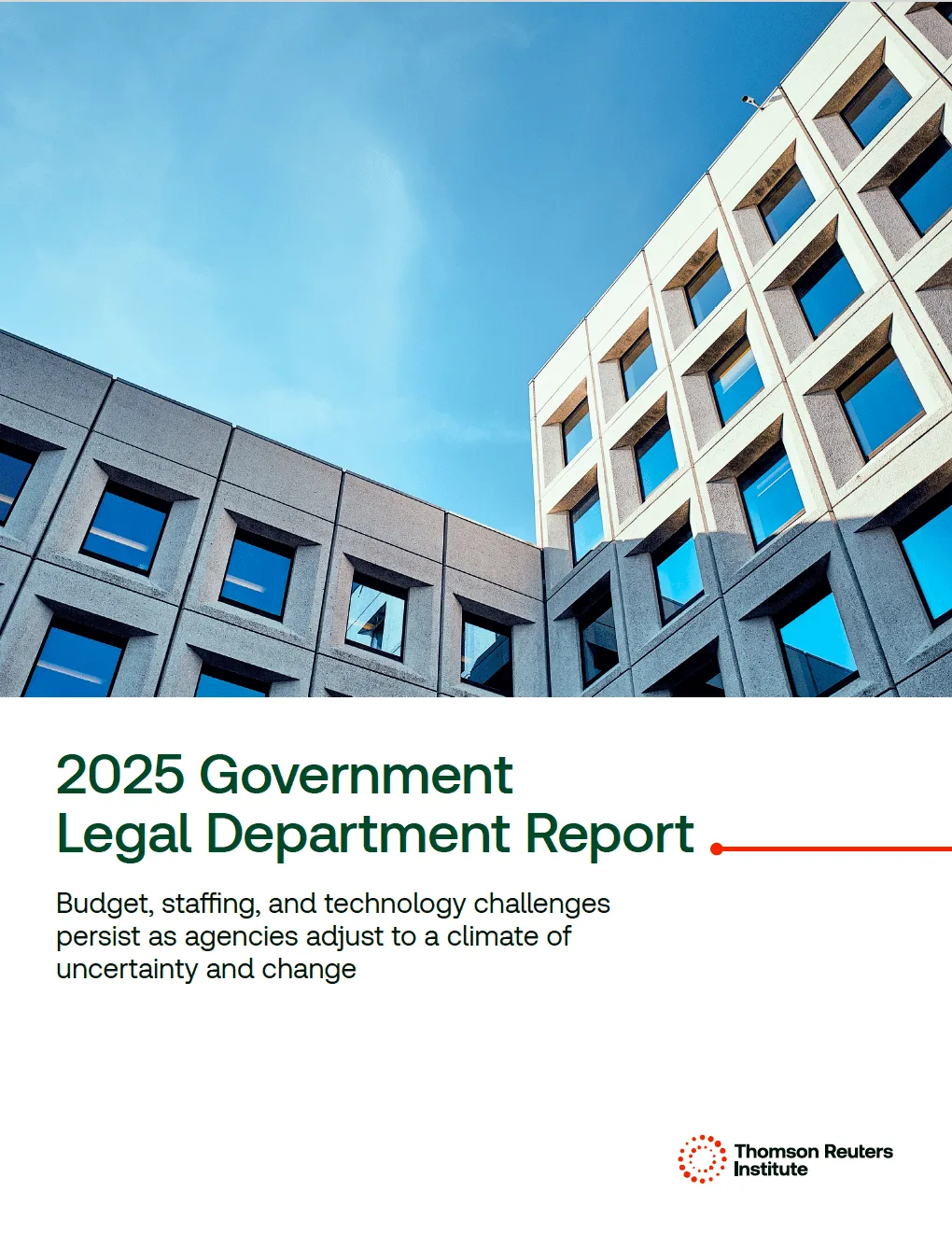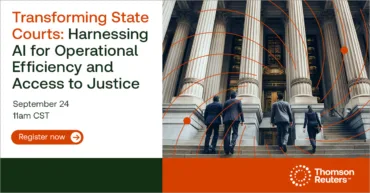Despite facing significant difficulties, government attorneys’ dedication to serving the public helps them continue doing their jobs well. That’s a main finding of the Thomson Reuters Institute’s recently released 2025 Government Legal Department report, drawn from a survey of 150 government law departments and agencies at the federal, state, and municipal levels.
Among its most significant findings, the report emphasizes the critical need for improved technology and resources. Overall, it paints a picture of legal professionals working valiantly to overcome long-lasting hurdles.
Jump to ↓
Technology investments for efficiency
Staffing challenges remain intractable
Above all, dedication to public service shines through
Technology investments for efficiency
Government agencies are generally slower to adopt new technologies and typically fall behind the private sector in updating existing systems. Two-thirds of respondents (68%) said their technology is below or far below that of private-sector attorneys, so it’s easy to imagine how outmoded technology can impede work, hamper efficiency, and cause frustration.
On the bright side, 42% of respondents said their government agency increased its technology spend in the past two years. That might mean that some departments’ technology (and their estimation of it) could improve in the near future.
Furthermore, four out of five respondents said they have the tools and technology to do their jobs properly. This indicates that while government attorneys can manage their tasks adequately, enhanced technology would significantly improve and streamline their work.
Curiously enough, the use of generative AI (GenAI) could be a lifesaver for government attorneys, but skepticism is widespread. Only 18% of survey respondents said they are optimistic about the use of GenAI, and 45% said they are neutral.
But the improvements that could come with greater use of AI and GenAI are worth holding out hope for, as these tools may present the best chance of swift and sustained boosts to efficiency and job satisfaction. Thomson Reuters CoCounsel Legal, the first and leading professional-grade AI solution, is the industry’s AI legal solution of choice. Courts across the U.S. federal court system — including the Supreme Court, circuit courts, and federal public defenders — as well as 94% of U.S. states, have CoCounsel Legal.

CoCounsel Legal
Work smarter with CoCounsel, seamlessly integrated with Westlaw, Practical Law, Microsoft 365, and DMS partners
Go professional-grade AI ↗Staffing challenges remain intractable
Staffing challenges are among the most pressing issues government legal departments face. Three out of the top four challenges cited by respondents pertained to talent:
- 52% said attracting and retaining new staff was a top concern
- 49% said the same of recruiting new staff
- 46% said loss of institutional knowledge due to retiring staff
57% expect their agency’s attorney staffing levels will remain unchanged in the next 12 months, but the report indicates some departments are addressing staffing issues creatively. About a third of agencies (34%) support hybrid work while 38% of respondents said they are in-office full-time. As non-government workplaces expand their on-site work requirements, flexible approaches can be a strong recruiting tool, especially for accommodating a younger workforce.
Another bright spot: More than half (54%) said they have made changes to demonstrate department value, partly in the interest of protecting themselves against further cuts. That’s a proactive step that may pay big dividends in the future.
Above all, dedication to public service shines through
Given the longstanding challenges government attorneys face, respondents are understandably questioning the future of government legal work. For example, last year, only 22% of federal and state attorneys thought there would be a future decline in access to justice, whereas 60% think so now. Over 60% of respondents also said the amount of work they’re able to send to outside law firms is likely to stay the same in the coming year. For departments with fewer resources and less time, the volume and complexity of workloads are unlikely to improve anytime soon.
While the report highlights a growing skepticism about the prospects for near-term improvement, the data also reveals pockets of optimism — and that government attorneys continue to take great pride and confidence in their work. And as challenges persist, government legal professionals will continue to do their best to overcome them.

2025 Government Legal Department Report
In-depth analyses of the most important issues government legal professionals are facing
Access full report ↗













